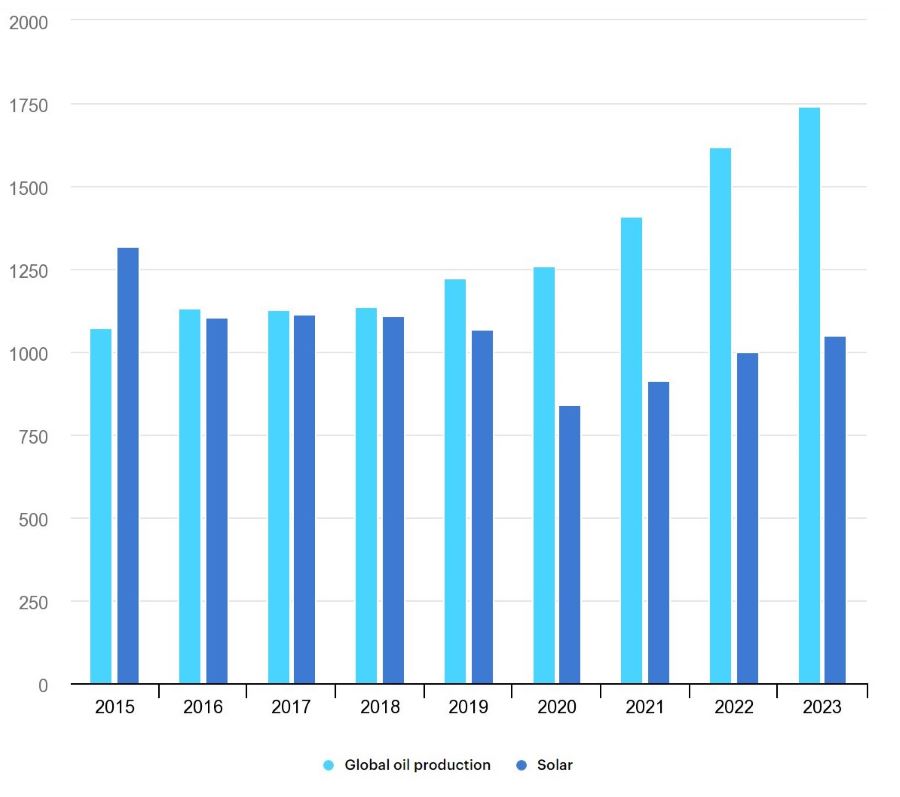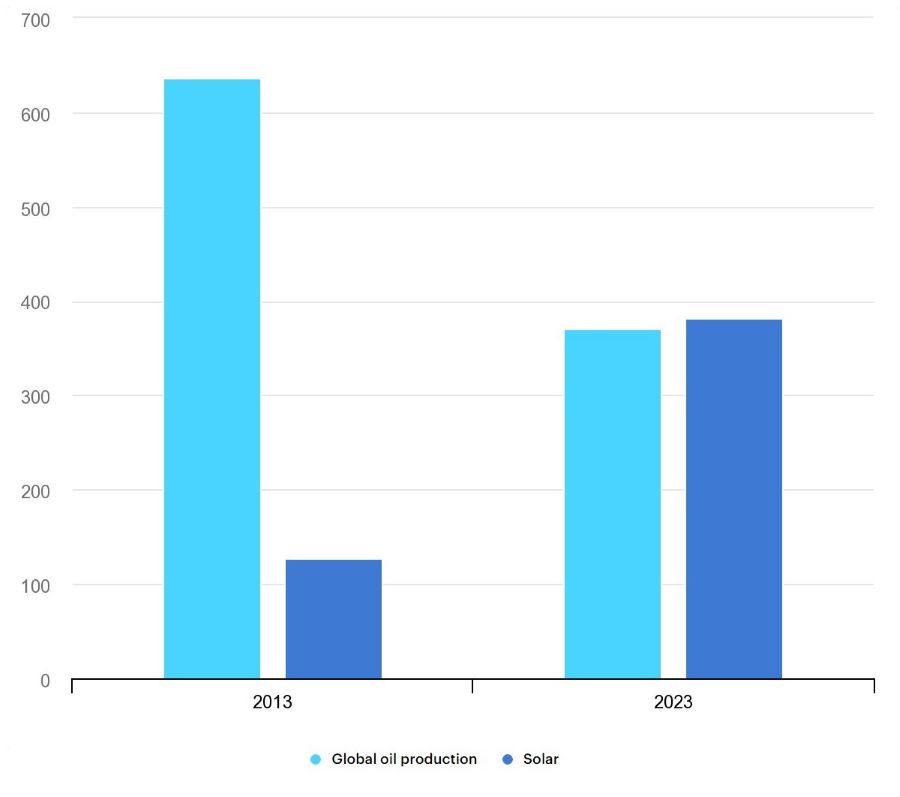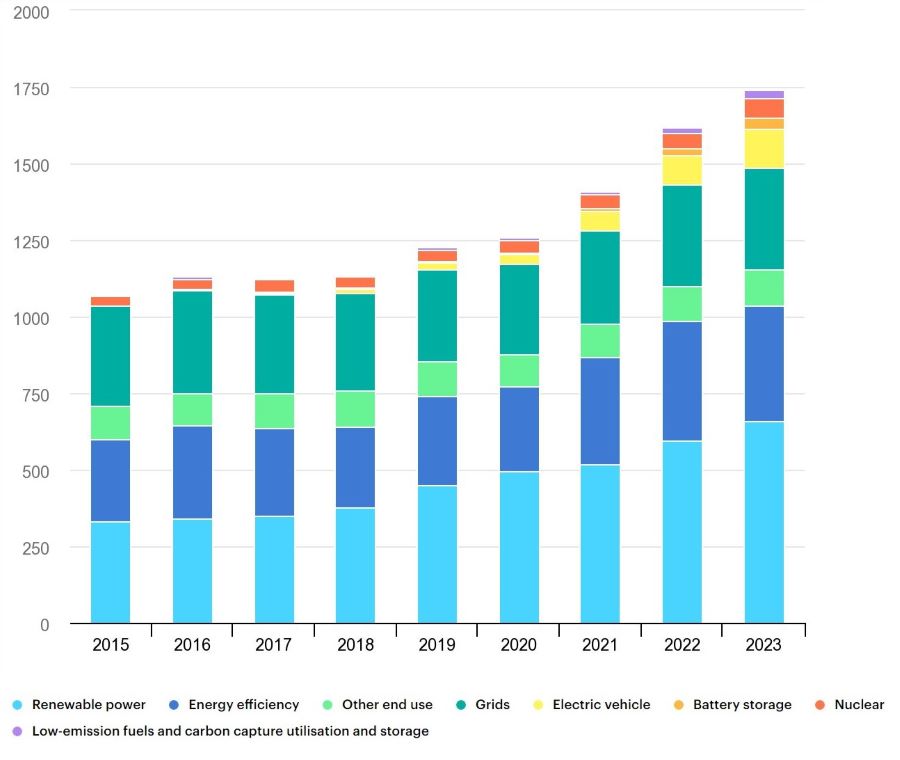In 2023, solar power investment will surpass oil investment for first time ever
Climate change concerns and governments’ commitments to reducing the use of fossil fuels have done way too little to accelerate the transition to renewable sources of energy; in fact, rising energy costs and logistic hardships as a result of the Russian-Ukrainian war are driving the world to embrace non-fossil energy, with solar power harnessing the largest support.

A report published recently by the International Energy Agency (IEA) says that, in 2023, investing in renewable energy, particularly solar power, will exceed the money spent on oil.
More to read:
Why did Microsoft buy non-existing fusion energy from Helion?
The IEA estimated that the total global investment in energy this year will be 2.8 trillion US dollars. More than 1.7 trillion of this will go to clean energy, which includes sources like wind, solar, hydro, nuclear power, efficient technologies, and electric vehicles.
The remaining 1 trillion will be invested mainly in oil and gas, with a small part going to coal.
In simple terms, for every dollar spent on fossil fuels, 1.70 dollars will be spent on clean energy.
Five years ago, these numbers were equal, so there's been a big change in a short time. The conflict in Ukraine has pushed countries to develop renewable energy sources to rely less on imported fossil fuels. In the US, laws like the Inflation Reduction Act have led to more investment in clean energy, including securing the battery supply chain. The use of electric cars is also increasing, with global sales expected to go up by 35% this year.

The IEA predicts that the world will invest around 382 billion dollars in solar power this year, which is more than 1 billion every day. On the other hand, investment in oil production is estimated to be 371 billion.
China is at the forefront of investing in clean energy, although it also produces over half of the world's coal-generated electricity. Following China are the European Union and the US in terms of clean energy investment.
Transitioning from fossil fuels to clean energy is necessary, but it's important to be realistic about it, the organization remarks. Shutting down coal, nuclear, and natural gas power plants before we have enough renewable sources can make the electricity grid unstable. Even though we install many wind turbines and solar panels, most countries are not yet capable of storing enough energy in batteries to fully rely on them all the time.

In spite of the good news about renewables, fossil fuel investment in 2023 is now more than double the levels required to meet much lower demand in the net zero CO2 emissions scenario by 2050. The IEA report predicts that investment in fossil fuel supply will go up by over 6% this year, mainly in oil and gas exploration.







